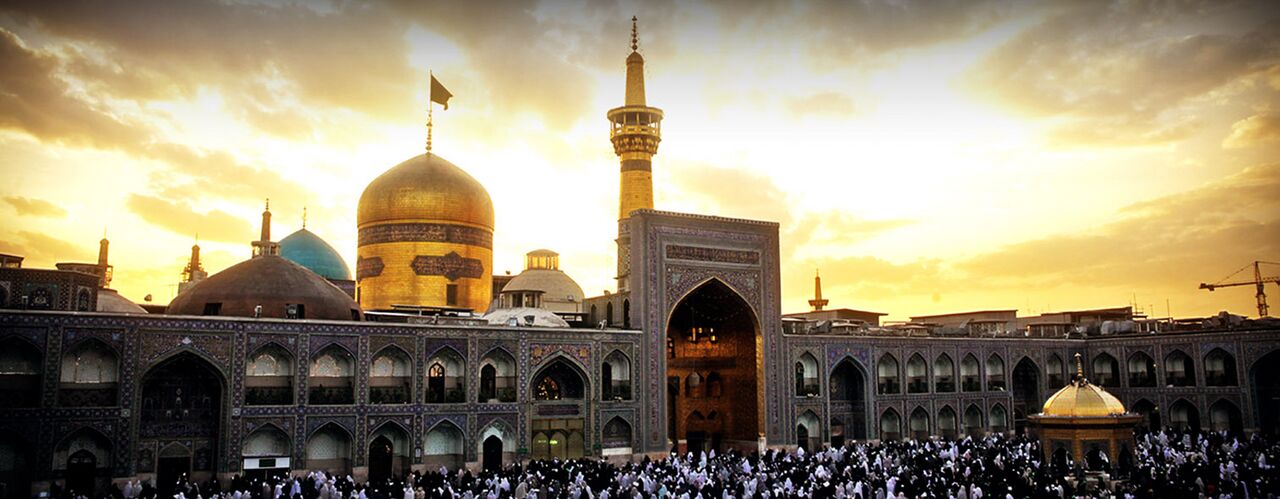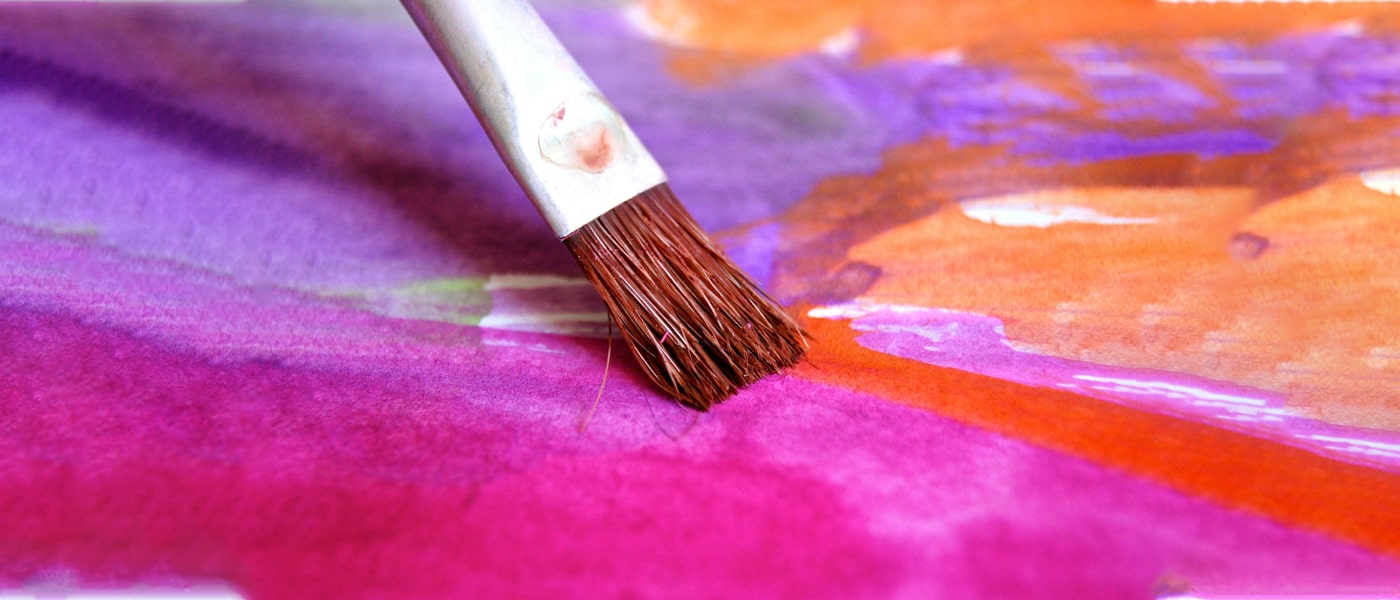

Imam Ridha (AS)
Imam Ridha (AS) is the eighth Shiite Imam. His original name was Ali, and his father’s name was Musa (AS). He was also known the Ra’uf Imam, which means a kind-hearted person. He was born on Dhu al-Qa’da 11th 148 H (765 AC).
Imam Ridha (AS) was the successor of his father, Imam Musa al-Kazim (AS). After Imam Kazim (AS), the Shia community faced several problems:
Firstly, a new deviated branch of the Shias emerged, called “Waghifiah”. Waghfiah believed that Imam Musa al-Kazim (AS) hadn’t died and he was still alive. They said that Imam Kazim (AS) was the promised Mahdi (AS) in Occultation and he would return one day. This rumor spread among the Shias, and many of them struggled with this test, denying the Imamate of Imam Ridha (AS).
Secondly, the situation worsened due to the belief that Imam Ridha (AS) had no living son which implied he had no successor. Those who denied the Imamate of Imam Ridha (AS) considered this as a sign that he was not a legitimate Imam. This was one of the most dangerous tests the Shias faced.
Thirdly, during Imam Ridha (AS) time, the Shia population had significantly increased, and many Shias were engaging in conflicts with the contemporary Abbasid Dynasty government. Abbasid dynasty was consistently hostile towards the Shias, subjecting them to severe oppression, especially during time of Harun ar-Rashid, one of the Abbasid kings in the time of Imam Ridha (AS). To ensure the survival of the Abbasid dynasty, Ma’mun, the successor of Harun, attempted to gain favor with the Shias by falsely declaring Imam Ridha (AS) as his successor. This led many people to believe that Imam Ridha (AS) had a good relationship with the cruel Abbasid dynasty, causing them to deny his Imamate.
Imam Ridha (AS) successfully resolved all these three problems during his time as Imam.
The Problem of Waghifiah
The beliefs of the Waghifiah were actually against the hadiths of Prophet Muhammad (PBUH & HP).
They believed that Imam Kazim (AS) was the last Shiite Imam and the promised Mahdi (AS).
However, Prophet Muhammad (PBUH & HP) had foretold that there would be twelve successors (Imams) after him:
Indeed, this religion will not end until twelve successors [of me] rise among the people. (1)
Based on this and similar hadiths, Imam Ridha (AS) refuted the beliefs of the Waghifiah.
the Son of Imam Ridha (AS)
After a while, Imam Jawad (AS), the son of Imam Ridha (AS) was born. Now people could see that Imam Ridha (AS) have a legitimate successor, and their doubts were unfounded. About Imam Javad (AS), Imam Ridha (AS) said:
No more blessed child than this boy has been born for the Shias. (2)
The birth of Imam Javad (AS) served as a proof of Imam Ridha’s (AS) Imamate.
The secession of Ma’mun
Ma’muns’ policy concerning Imam Ridha (AS) aimed to deceive the Shias, and it did deceive some of them. However, Imam Ridha (AS) had his own strategy. Initially, he refused Ma’mun’s proposal to become his successor. Still, Ma’mun forced Imam Ridha (AS) to accept it, threatening to kill him otherwise.(3) Therefore, Imam Ridha (AS) accepted under conditions. Imam Ridha (AS) said:
I accept your proposal under the condition that I can’t command or prohibit anyone, I won’t be the Judge, I won’t appoint anyone to be a ruler or to depose one. I won’t change anything. (4)
Ma’mun accepted these conditions, but he didn’t realize that this demonstrated would Imam Ridha’s (AS) disagreement with his plan. By making this condition, accepting Ma’mun’s proposal was no different from rejecting it. After a while, Ma’mun understood that he couldn’t use Imam Ridha (AS) to deceive the Shias, so he decided to kill Imam Ridha (AS), and he did.
Imam Ridha (AS) was poisoned by Ma’mun on Safar 30th, 203 H (818 AC).
Resources
- Sahih al-Muslim, Muslim an-Neishaburi, vol.3, pg.1452
- Al-Kafi, Sheikh Koleini, vol.1, pg.321
- I’lal ash-Shara’I, Sheikh Saduq, pg.238
- I’lam al-Vara, Sheikh Tabarsi, vol.2, pg.72
Share This Article

Will Everyone (eventually) Go to Heaven in Islam?
For those who believe in the afterlife, there is often this concern that whether they go to heaven or hell. Some Muslims believe that being a Muslim suffices for entering heaven, but is that true? If so, what happens to those who are born to non-Muslim families? Some believe that all Muslims are Arab or to become Muslim one should be whether Arab or know Arabic. Then, they might ask about what will happen to those who do not know Arabic. Since no one chooses where to be born, is it fair to send those born among disbelievers (Kafir) to hell? What will happen to converts because of their past before conversion to Islam? These and other questions are all answered here.
Heaven or hell? It is up to you!
Some people believe that God has created mankind to send some of them to heaven and the rest to hell! But, it is not true at all. One is totally free to follow the divine guidance and reach heaven or to deny it and go to hell. Hence, everyone determines him\herself where he\she goes after death.
According to the Quran, God will curse those who are disbelievers and die while they are still disbeliever (2:161). They will remain in hell forever, their punishment will not be alleviated, nor will they be reprieved (2:162). On the contrary, those who are faithful to God and do righteous deeds (98:7) will be rewarded the Gardens of Eden. God will be pleased with them, and they will be pleased with Him (98:8).
Knowing that not having faith will end in hell, what will happen to believers? Will they all enter heaven?
What will happen to the followers of the previous monotheistic faiths?
Islam recognizes the freedom and other rights of the followers of the previous religions; also, has ordered Muslims to hold them in considerable respect [1]. Moreover, Islam knows those followers eligible for salvation; it all depends on one’s deeds and faith in God. In Surah al-Baqarah it is said that: “Indeed, the faithful, the Jews, the Christians, and the Sabaeans—those of them who have faith in Allah and the Last Day and act righteously—they shall have their reward from their Lord, and they will have no fear, nor will they grieve” (2:62). In other words, according to the Islamic principles, it is disagreeable to punish those who have not received the message of Islam either before its rise or after that, and God will never do that.
Are all Muslims allowed to enter heaven?
In Surah Al-i-Imran it is said that anyone who follows a religion other than Islam will be among the losers in the Hereafter (3:85). So, being a Muslim, on its own, is the prerequisite for entering heaven; but it is not enough. The key to the eternal salvation and heaven is doing good deeds. Whoever submits to Islam but does not do any good deeds will not go to heaven. On the contrary, there are people who are not Muslim, as we call it, but they will accept Islam if they receive its message and therefore, they might enter heaven. In other words, one should have faith and submit to God, and this should be manifested in one’s acts.
In Surah al-Hujurat, the difference between belief and submission is clarified (49:14). By saying the two testimonies (Shahada), one submits to Islam, but being faithful is more than that. To have faith in God deep in the heart, one should obey God and his messenger, Prophet Muhammad (PBUH&HP) (49:14), and this should be reflected in one’s conduct [2].
It is also stated that the noblest of people before God is the most righteous of them (2:13). This is logical, too. We also, as human beings, naturally like and appreciate those who are good and do good deeds. Hence, what is important is one’s deeds. Skin color, race, language, nationality, gender, age, and social class do not solely lead to salvation and heaven. Two clear examples in this regard are the son of Prophet Noah (PBUH) and the wife of Prophet Lot (PBUH) who both did not believe in prophet’s message and were thus condemned to Hell. Their stories warn that in spite of being a member of the family of the prophet, one might deviate, disobey God and move towards hell.
How about disbelievers?
Among disbelievers (Kafir), there are those who deny the truth and will never submit to the divine guidance. These will never enter heaven, as mentioned earlier. There are also non-Muslims who have not received the message of Islam, and they are not responsible for not receiving it, but they will surely accept Islam as soon as they know about it. These will not be punished and will not go to hell since the Quran says: “We do not punish (any community) until We have sent (to them) an apostle” (17:15).
References:
- Monotheistic faith
- M. H. Tabataba'I, “Tafsir al-mizan”, (2 :14).
Read More

What Types of Drawings in Islam Are Permissible?
The issue of art and drawings in Islam is among those topics that have not been directly mentioned and ruled on in the Quran. Therefore, one might wonder if drawings in Islam is allowed (Halal) or not and if yes, then are all types of drawings permitted (Halal)?
There are a few traditions narrated about drawings in Islam that are usually used to answer this question. However, since the answer can be derived from the Quran, this text tries to answer the question based on the Quranic verses.
Now, you might be asking how it is possible to understand the ruling on drawing while there is no direct mention of it in the Quran. The answer is clear; the Quran provides us with a set of fixed frameworks that work as a criterion for us. And whenever we come to a question that we think was not an issue at the time of the Prophet (PBUH&HP), we can study it, based on the Islamic criteria and find the answer.
Does Allah Like Art?
Drawings in Islam and all other types of art are considered as tools to make things more beautiful and to create a feeling of admiration in their audience. Allah (SWT) has created this universe most superbly and has ordered all His creatures to admire and praise Him for this beautification. After creating the human, He looked at his creation and admired His own creation: “He formed you and perfected your forms, and provided you with all the good things. That is Allah, your Lord! Blessed is Allah, Lord of all the worlds!” (40:64)
Apart from the whole magnificent scenery of the universe, created by Allah (SWT), there are also some verses of the Quran that indicate the importance of beauty in the eyes of our Creator. And that is why the Prophet (PBUH&HP)’s saying, “Indeed Allah is beautiful and likes beauty” has become so famous [1]. The importance of beauty in the eyes of Allah is visible in different verses of the Quran:
“O Children of Adam! Put on your adornment on every occasion of prayer … Say, ‘Who has forbidden the adornment of Allah which He has brought forth for His servants, and the good things of [His] provision?’” (7:31-32)
What Can We Find in the Quran about Art?
Creativity is a blessing with which Allah (SWT) has provided human beings (not to mention all the artistic creations of other creatures). And therefore, human beings have always created new things using their creativity, the effect of which is evident in the history and the Quran, e.g., in building houses, castles, making clothes, or designing jewelry, etc.
However, the Quran does not admire all types of art. For example, making sculptures or figures to worship and as idols are considered to be negative. For instance, Prophet Abraham (PBUH), facing his people who were worshiping lifeless and dumb idols, addresses his father and says: “What are these images to which you keep on clinging?” (21: 52)
While in another Surah of the Quran, making statues and sculptures and other pieces of art so far as they are useful for human beings are referred to as positive and admirable. An example is when The Jinn built those pieces of art under the observation of Prophet Solomon (PBUH): “They built for him as many temples as he wished, and figures, basins like cisterns, and caldrons fixed [in the ground] …” (34:13).
Besides, the main ruling on doing artworks can be derived from a Surah in the Quran called Surah Al-Shu’araa’ which means Poets.
In this Surah Allah (SWT) clearly describes the essence of forbidden (Haram) and allowed (Halal) art with a direct mention of poetry which was popular in Prophet (PBUH&HP)’s time:
“As for the poets, [only] the perverse follow them. Have you not regarded that they rove in every valley and that they say what they do not do? Barring those who have faith, do righteous deeds, and remember Allah much often, and vindicate themselves after they have been wronged. And the wrongdoers will soon know at what goal they will end up.” (26: 224-7)
In these verses, Allah (SWT) states that only perverse people would follow and admire the poets. And in describing the poets, it is mentioned that “they rove in every valley,” meaning that they make up things from their imagination. At the time of the Prophet (PBUH&HP), ‘most poetries were about the beauty of women, adultery, and pervert behaviors.’ However, Allah (SWT) does not forbid poetry completely; rather, He ‘makes the exception of faithful poets’ in the next verse. ‘Those who use their art as a tool to defend justice and to reveal oppression and injustice.’ [2]
How Do I Know My Drawings in Islam Are Forbidden (Haram) or Allowed (Halal)?
From the above verses of the Quran, we can conclude that any form of art or any other tool is allowed (Halal) provided that they are used in the way of Allah, and if used in the way of Satan, they are considered to be forbidden (Haram). Therefore, it is of utmost importance to be familiar with the Islamic jurisprudence to distinguish the right from wrong from an Islamic viewpoint.
Another point that needs to be considered about different forms of art and drawing is that they should not go against the Islamic jurisprudence. Including erotic pictures or scenes in drawings or illustrations is one example of what makes this form of art forbidden. Therefore, as long as the drawing or making sculptures do not have any adverse harm for human soul and improvement, the ruling is as follows: “There is no harm at all in the sculpture, photography, and drawings of living beings whether or not they have a soul. Also, it is permissible to sell, buy, or keep pictures and statues. There is no objection to showing them in an exhibition as well” [3].
References:
- Al-Kafi. Vol. 6, p. 438
- Tafseer-e Noor, Qara’ati, M. Vol. 6, p. 381
- Painting and sculpture
Read More

